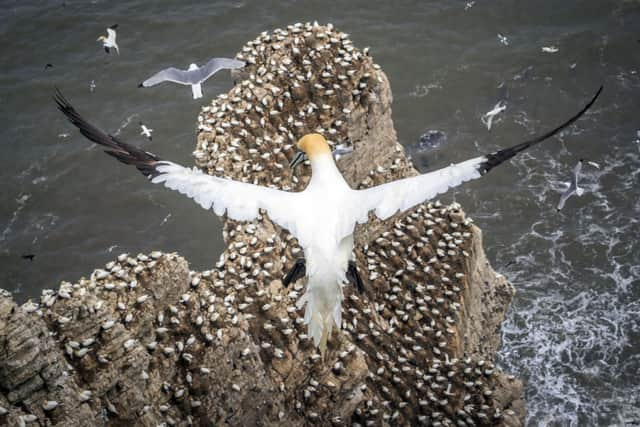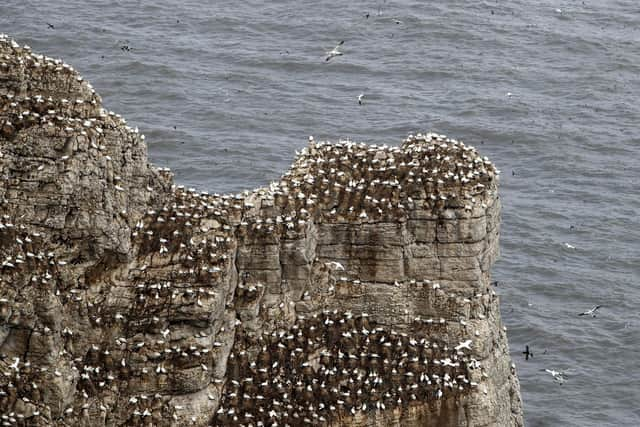Hundreds of seabirds die from bird flu at RSPB Bempton Cliffs
and live on Freeview channel 276
RSPB Bempton Cliffs - where half a million seabirds gather every year to raise a family - said it had been the worst breeding season ever for gannets.
Britain's largest seabird, northern gannets pair for life and return to the same nest site from West Africa every year.
Advertisement
Hide AdAdvertisement
Hide AdBut there’s no evidence that bird flu has affected other seabirds at Bempton, including kittiwakes, guillemots and puffins.


Site manager David O 'Hara said they'd got off relatively lightly given the flu’s devastating impact in places like the Farne Islands, off the Northumberland coast, where thousands died.
At Bempton, most of the losses took place in August, when hundreds of gannet chicks died in the densest area of the colony at Staple Newk, and some dead adult birds were recorded on the sea.
Around 80 per cent of the chicks in two of the plots they monitor on Staple Newk had died. Hundreds of adults are also thought to have died.
Advertisement
Hide AdAdvertisement
Hide AdMr O’Hara said: "Although it wasn't proven, it was very typical of bird flu. One chick would die and others would die around it, as you'd expect from a virus.


"If there is a positive it seems because of the way they nest on narrow ledges there wasn't much transmission.
"It didn't spread like we feared it might do. Maybe it came quite late and didn't get the chance to spread more."
For most of the 13,000 pairs of gannets nesting elsewhere the impact "has been thankfully very small".
Advertisement
Hide AdAdvertisement
Hide AdMeanwhile kittiwakes had the best breeding season for over ten years with 44,000 pairs producing around 30,000 chicks.
Two kittiwakes found at nearby Speeton in August tested positive for bird flu, but by then most of the chicks had fledged.
Most of the seabirds are now back out at sea, and attention will turn to how bird flu is affecting wildfowl and waders starting to congregate in sites, including on the Humber estuary.
They are working on plans with Natural England to extend monitoring of gannets using fixed set and time lapse cameras.
Mr O’Hara said: "We are not complacent for next year - it will be a worrying time."
